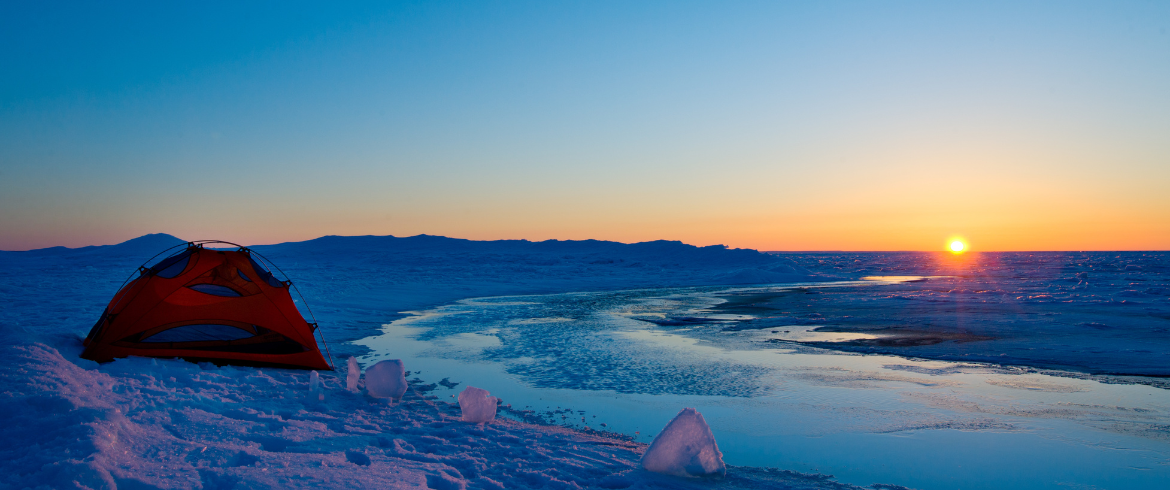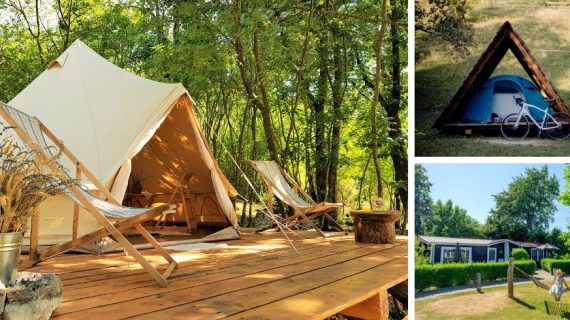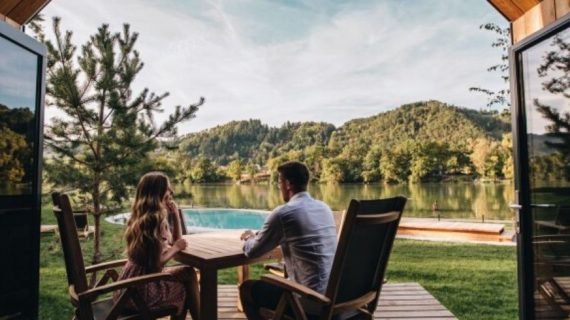A winter hike is a great opportunity to escape from everyday life, enjoy the beauty and charm of the snowy season in nature, and have fun with friends. Winter is an amazing time of year to gain new exciting experiences and pleasant memories. And camping is the perfect way to challenge yourself, get to know yourself better, and do something more interesting than just sitting at home.
Some of the key aspects to consider when planning winter camping are weather conditions, a suitable and protected one-person winter tent or a large shelter for a group of people, and camping gear, as well as your experience and knowledge. For example, when camping, it’s helpful to know how to keep the warmth inside the tent, how to start a fire, and what to pack first in your backpack. The more you know, the more comfortable and safe your camping experience will be.
But the most important thing in any winter journey is your feelings. If you want to enjoy your winter travel, you can easily overcome these challenges, especially if you pay attention to preparation and planning in advance.
Let’s look at 7 essential winter camping tips to make it more comfortable and avoid some mistakes to ensure your camping experience is exciting and fun!
Bring Enough Warm Clothing & Dress In Layers.
The main rule is to wear warm clothes when hiking in winter, especially ones designed for extreme temperatures.
When choosing your wardrobe, give preference to warm clothes made from synthetic fabrics, best suited for cold weather. Cotton clothing is not a good choice as it will cause you to lose heat quickly. Additionally, be sure to take a spare pair of waterproof shoes, as it is critical to keep your feet dry throughout your camping trip.
The next aspect is to dress in layers. The outer layer of clothing should be waterproof to protect against moisture and water. The inner layer should consist of warm clothes with good heat retention.
Don’t forget a hat, gloves, warm socks, and a scarf. To avoid freezing, the head, neck, arms, and feet must be protected.
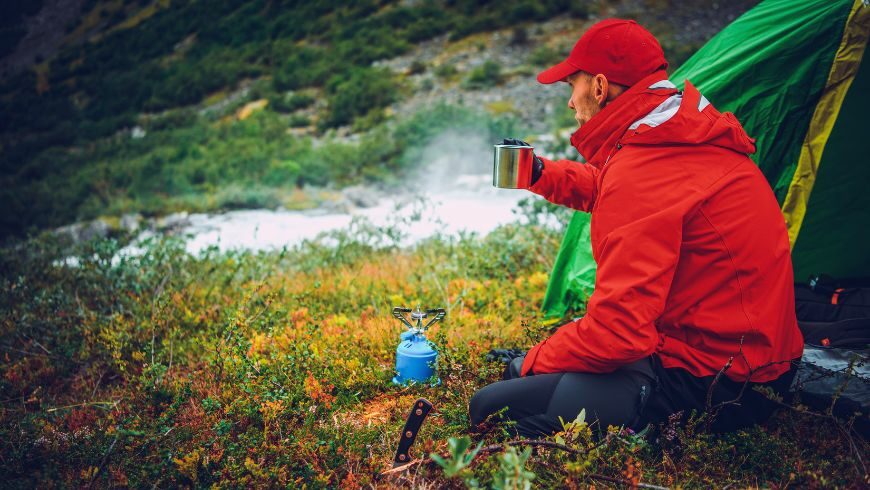
Invest In Gear Specifically Designed For Cold Weather
This is one of the most crucial tips. When going camping in winter, you need to make sure that all your equipment is suitable for harsh winter conditions. Tents, sleeping bags, and gear must be of high quality to keep you warm and safe during the day or night.
Even though winter camping equipment is usually more expensive than summer gear, you shouldn’t skimp on it.
Move & Be Active
Being active is especially important on a winter trip. Therefore, it is worth planning beforehand the activities you would like to do with your friends.
Winter offers excellent opportunities for many hobbies such as skiing, snowboarding, hiking, fishing, etc. You can also remember your childhood and have a snowball fight. The main thing on a hike is to have fun and enjoy interesting outdoor activities, because in addition to great memories, being in constant motion is necessary in order not to experience discomfort from low temperatures.
Bring Additional Equipment
Today, outdoor gear stores are filled with items designed to make camping better and safer. For a comfortable overnight stay in nature in winter, special attention should be paid to what additional equipment you may need and what you can take with you. Portable stoves, thermoses, and compact shoe dryers that allow you also to dry your clothes are a big bonus.
If you are going camping by car, then it is worth taking extra gear which will be very useful and will make your winter camping experience better.
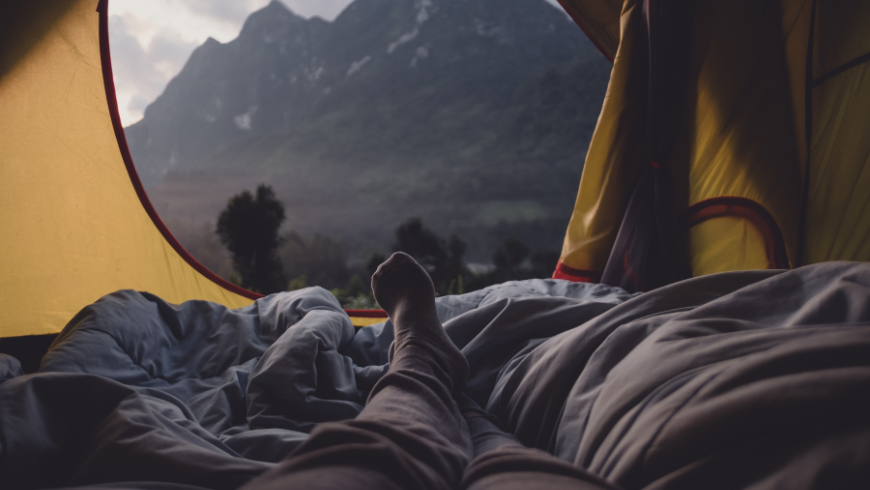
Choose Your Campground Carefully
The location where you plan to camp is critical, as it can make or break your camping experience. Therefore, you should pay special attention to finding a suitable spot when planning your trip.
There are many excellent locations for winter camping, some are well-equipped campgrounds, and others could be primitive sites. The choice of spot largely depends on your skills and equipment.
The best option for beginners in winter camping would be campgrounds with amenities and hookups. Winter weather can easily cause problems, so it’s worth staying somewhere where it’s easy to get help if needed. In addition, the campground usually has a developed infrastructure, which will make your outdoor recreation easier, especially in winter.
Make Sure The Location Is Safe
During the process of choosing a location, it is also important to learn more about that place. Pay attention to the fauna and maps of the area to avoid the risk of encountering predators. Maps will not only improve navigation around the area but will also help you avoid the risk of falling through the ice because some lakes and other bodies of water can be completely covered with snow.
Also, find out in advance about the risks of avalanches and other natural phenomena in the region you are going to visit.
Interact With The Surrounding
The better you use your surroundings, the more comfortable your camping experience will be. One of the benefits of winter camping is that even snow can be an advantage. As children, many of us had snowball fights or built snow forts. These children’s games can also be useful on a winter trip. If you’re in an open area, on a hill, or near water, strong winds can ruin your camping. But you can easily protect yourself from the wind by building a snow fort around your camp. Snow forts are not only additional protection but also a fun pastime.
So the more creative you are with your surroundings, the better your camping experience can be!
Cover image: photo via Canva PRO
